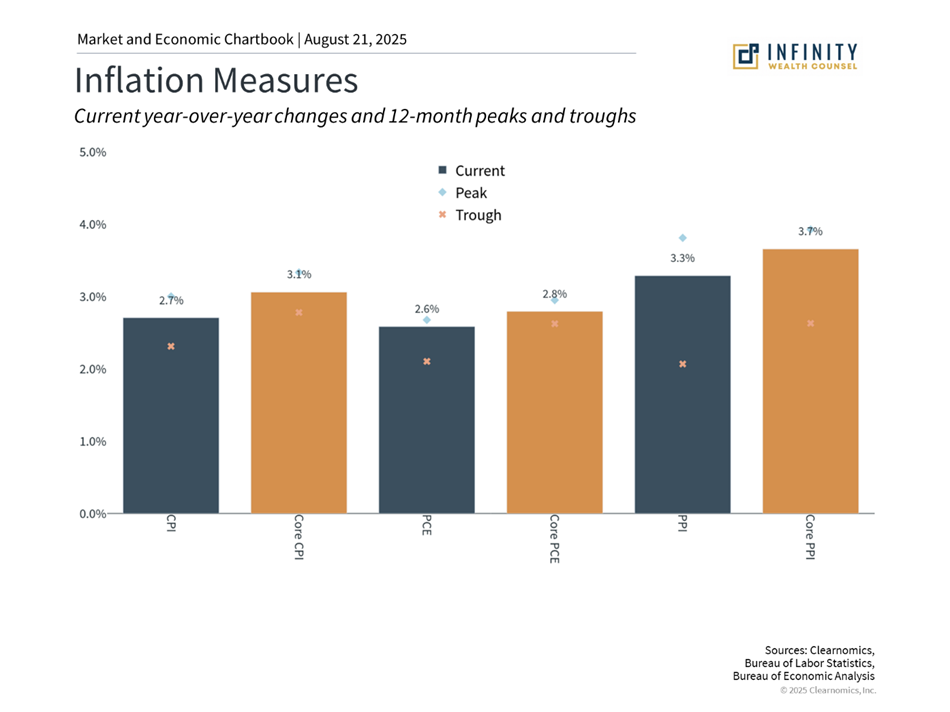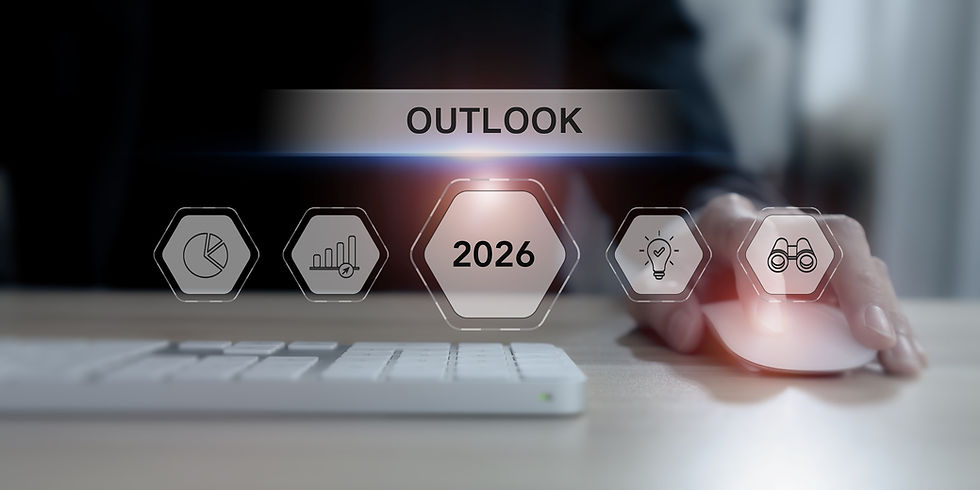How investors can keep up with inflation
- Matt Oberholzer

- Aug 25, 2025
- 3 min read
Think about natural disasters like earthquakes and erosion. One happens quickly and causes immediate damage. The other happens slowly over many years. Both can hurt you if you're not prepared. Money problems work the same way. Rising prices (called inflation) can harm your finances whether they go up fast or slowly over time.
Some people remember when prices rose quickly in the 1970s and 1980s, or more recently after the pandemic. Today, prices are still going up more than many people want. There are worries that tariffs (fees on imported goods) might make things cost even more. But the economy is also doing well in other ways - people have jobs, they're spending money, and companies are making profits.
Smart investors don't wait for inflation to become a bigger problem. They build investment portfolios that can handle different situations. Let's look at what recent price increases mean for your money.
Rising prices make your money worth less over time

Most people who invest or save money know that beating inflation is important. You need your investments to grow faster than prices rise. Otherwise, you won't be able to buy as much in the future. The chart shows this clearly - what cost $1 one hundred years ago now costs $18.
You might think that zero inflation (no price increases) would be best. But that's not true. Economists believe that a small amount of inflation - about 2% per year - is actually good for the economy. This gives the Federal Reserve (the central bank) room to help the economy when needed.
Even small inflation rates hurt savers over time. At just 3% inflation per year, prices double every 24 years. This means $100,000 today would need to be $200,000 in twenty years to buy the same things. This is especially hard for retirees living on fixed incomes.
Inflation is staying higher than expected

Many people worry that tariffs will cause prices to jump quickly. Recent reports show that wholesale prices (what businesses pay) rose 0.9% in just one month - the biggest increase since 2022. These wholesale price increases often show up in consumer prices a few months later.
Consumer prices rose 2.7% over the past year. When you remove food and energy costs, prices went up 3.1%. Much of this increase came from housing costs. These numbers directly affect families' budgets. Restaurant meals cost 3.9% more than last year, medical care went up 3.5%, and car insurance jumped 5.3%.
You need the right mix of investments to beat inflation

While current inflation is not as high as it was in 2021-2022, it's still eating away at the value of cash. The chart shows that money sitting in savings accounts hasn't kept up with rising prices over time. Yet people are still keeping record amounts of money ($7.1 trillion) in money market funds.
History shows that both stocks and bonds have beaten inflation over long periods. But stocks can be bumpy during times of high inflation, like in 2022. That's why having a mix of different investments can help protect you from both inflation and market ups and downs.
Most importantly, don't make big changes to your investments based on monthly inflation reports. While you should make sure your portfolio can handle different situations, reacting too quickly to short-term news often leads to bad timing decisions.
The bottom line? Rising prices slowly eat away at your money's buying power over time. Having the right mix of investments that can grow and produce income is the best way to reach your financial goals.




Comments